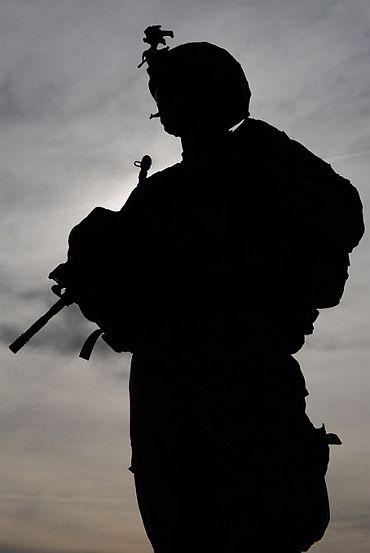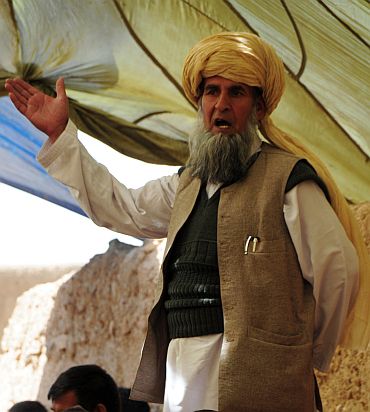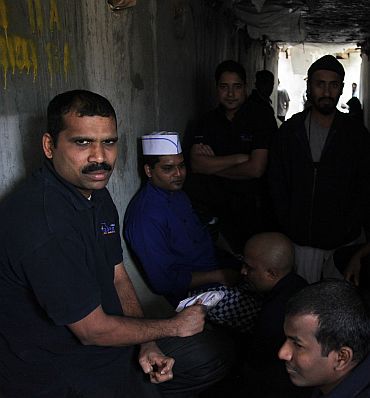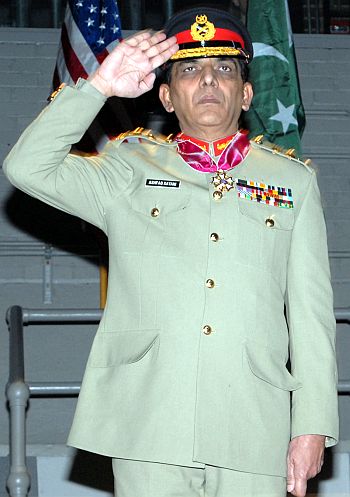Harsh V Pant
This is the time to show the international community that contra Pakistan, it is India that remains a major partner of Afghanistan and therefore, India's concerns should not be ignored, says Harsh V Pant.
Describing Osama bin Laden's killing by US special forces as a 'unique moment' in the history of the region, Indian Prime Minister Manmohan Singh landed in Kabul amid worldwide interest in India's future trajectory in Afghanistan.
Dr Singh was in Afghanistan after a gap of six years and announced a fresh commitment of $500 million for Afghanistan's development, over and above India's existing aid assistance of around $1.5 billion.
New Delhi and Kabul agreed that the 'strategic partnership' between the two neighbours, to be implemented under the framework of a partnership council headed by the foreign ministers of the two nations, will entail cooperation in areas of security, law enforcement and justice, including an enhanced focus on cooperation in the fight against international terrorism, organised crime, illegal trafficking in narcotics, and money-laundering.
The Indian prime minister, in a rare honour, addressed a joint session of the Afghan Parliament underscoring Indo-Afghan unity in fighting extremism.
This is a new phase in Af-Pak and India is using its political capital to reinforce its centrality in the evolving strategic realities in the region. It is important to recall how different the environment was just a few days back when the Pakistani military was urging Hamid Karzai to dump the US and instead look to Pakistan and its Chinese ally for help in striking a peace deal with the Taliban and rebuilding the economy. Just last month Kabul and Islamabad had also announced the establishment of a two-tiered joint commission, giving Pakistani military a formal role in reconciliation talks between Kabul and Pakistan-based insurgents.
...
India has allowed the West and Pakistan to dictate policy
India's options in Afghanistan seem to have shrunk over the last few years despite being the only country that has been successful in winning the hearts and minds of ordinary Afghans. And the fault lies entirely with New Delhi.
By failing to craft its own narrative on Af-Pak ever since the US troops went into Afghanistan in the aftermath of September 11, 2001, New Delhi has allowed the West, and increasingly Pakistan, to dictate the contours of Indian policy towards the region.
Two major strands can be discerned in the debate on Afghanistan in India.
There are those who argue that despite recent setbacks, India should continue to rely on the US to secure its interests in Af-Pak. They suggest that there is a fundamental convergence between India and the Barack Obama administration in viewing Pakistan as the source of Afghanistan's insecurity and the suggestion that the world must act together to cure Islamabad of its political malaise.
In recognising that the borderlands between Pakistan and Afghanistan constitute the single most important threat to global peace and security, arguing that Islamabad is part of the problem rather than the solution, and asking India to join an international concert in managing the Af-Pak region, the US has made significant departures from its traditionally held posture towards South Asia.
India, therefore, would be best served by coordinating its counter-terror strategy with the American one and should help the US by acknowledging the linkage between Pakistan's eastern and western frontiers. India should, in this view, try to address Pakistan's fears of Indian meddling on its western frontiers, unfounded as they might be and should not even hesitate in reaching out to the Pakistani Army.
Many don't like India's reliance on the US in Af-Pak
Image: An village elder speaks during the shura about how he thinks the US Army and other forces can help the village peopleThe other side in this debate has been getting impatient with India's continued reliance on the US to pull its chestnuts out of the fire. According to this argument, a fundamental disconnect has emerged between US and Indian interests in Af-Pak.
The Obama administration has been systematically ignoring Indian interests in the crafting of its Af-Pak priorities. While actively discouraging India from assuming a higher profile in Afghanistan, for fear of offending Pakistan, the US has failed to persuade Pakistan into taking Indian concerns more seriously.
Anxious for some kind of victory, the West has decided to court the 'good' Taliban with Pakistan's help. This has underlined Islamabad's centrality in the unfolding strategic dynamic in the region, much to India's discomfiture.
By pursuing a strategy that will give Pakistan the leading role in the state structures in Afghanistan, the West, however, is only sowing the seeds for future regional turmoil.
While the US may have no vital interest in determining who actually governs in Afghanistan, so long as the Afghan territory is not being used to launch attacks on US soil, India does. The Taliban -- good or bad -- are opposed to India in fundamental ways. The consequence of abandoning the goal to establish a functioning Afghan state and a moderate Pakistan will be greater pressure on Indian security.
India needs to use hard power and assert its profile
Image: Indian foods service workers stand inside a bunker during a rocket attack by anti-Afghan forces at Forward Operation Base JoyceIndian influence in Afghanistan rose significantly as American support for Pakistan shifted and Washington demanded that Pakistan adopt policies that India had long wanted in the immediate aftermath of 9/11.
Moreover, India emerged as a major economic actor in Afghanistan trying to bolster the Afghan state's capacity in various measures. But by refusing to use hard power and asserting its profile more forcefully India soon made itself irrelevant as the ground realities changed and a divergence emerged between the strategic interests of India and Washington.
The Obama administration intent on moving out of Afghanistan has managed to signal to Indian adversaries that they can shape the post-American ground realities to serve their own ends. India lost the confidence of its own allies in Afghanistan.
If India was unwilling to stand up for its own interests, few saw the benefit of aligning with India. The Indian presence which looked formidable during George W Bush period started weakening with the emergence of the Obama administration which deepened its security dependence on Pakistan in the hope of achieving rapid success.
India must ensure its concerns are not ignored
Image: Pakistan Army Chief General Ashfaq KayaniMoreover, Pakistan's weak democracy and powerful military and intelligence apparatus has failed to get a grip on the problem that now threatens to overwhelm the Pakistani state itself. The inflexible India-centric security perception of the army will make a rapprochement with India a non-starter.
Pakistan Army Chief General Ashfaq Kayani is clear that he wants to call the shots in Kabul. He remains wedded to the notion of 'strategic depth' -- that is, to making Afghanistan the kind of proprietary hinterland for Pakistan, free of Indian or other outside influence, which it was from 1992 to 2001.
The death of Osama bin Laden has once again given a new opportunity to India in Afghanistan and New Delhi should be wary of letting it go waste.
This is the time to show the international community that contra Pakistan, it is India that remains a major partner of Afghanistan and therefore, India's concerns should not be ignored.






article